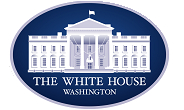Product

July 29, 2021
Infrastructure Bill Moves Forward, Steel Groups Cheer
Written by Michael Cowden
Steel lobbying groups cheered a procedural move advancing a bipartisan infrastructure bill through the Senate. The 67-32 vote does not mean the bill has passed. But it clears a key hurdle on the way toward turning a potentially $1 trillion bill, including $550 billion on steel-intensive infrastructure, into law.
![]() Congress – both the House and the Senate – have to agree on final language before a bill can be presented to President Biden to sign. But the fillibuster-proof majority that voted to advance debate in the Senate bodes well for the bill’s prospects, D.C. sources said.
Congress – both the House and the Senate – have to agree on final language before a bill can be presented to President Biden to sign. But the fillibuster-proof majority that voted to advance debate in the Senate bodes well for the bill’s prospects, D.C. sources said.
The money will go toward traditional infrastructure – things like roads, bridges and water transmission lines. It would also allow the U.S. to modernize its electric grid, increase broadband internet access and upgrade public transit, Steel Manufacturers Association (SMA) President Philip K. Bell said in a statement on Thursday, July 29.
“SMA commends the determination of President Biden and the bipartisan group of senators that negotiated this deal,” Bell said. “We encourage Congress to pass infrastructure legislation as expeditiously as possible so that our nation can get to work on these important projects.”
The American Iron and Steel Institute (AISI) agreed. It said the bipartisan measure the Senate had advanced provides a framework for a potentially historic, and long overdue, investment in U.S. infrastructure. “This is a key development in the process to fix America’s deteriorating roads and bridges,” AISI President and CEO Kevin Dempsey said. “We urge the Congress to pass this critical legislation as soon as possible.”
Dempsey also applauded language in the bill that would make sure that steel used in water infrastructure projects is made in the U.S.
Buy America provisions – which require that steel be melted and poured in the U.S. – have in past infrastructure-related legislation focused mostly on transportation infrastructure. The language agreed to in the Senate would expand Buy America to cover water infrastructure as well.
President Biden also cheered the vote. “This deal signals to the world that our democracy can function, deliver, and do big things. As we did with the transcontinental railroad and the interstate highway, we will once again transform America and propel us into the future,” he said in a statement.
An AISI official said that every $1 billion spent on infrastructure equates to 50,000 tons of steel demand on an SMU Community Chat webinar in March. But he also noted that the volume – 50 million tons in theory ($1 trillion is one thousand times a billion) might be spread over eight years in practice.
Separately, President Biden said yesterday in a speech at Mack Truck’s Lehigh Valley operations in Pennsylvania that he would strengthen enforcement of the Buy American Act. Buy American, not to be confused with Buy America, requires that government-funded procurement gives preference to goods made in the U.S. Biden signed an executive order in January strenthening Buy American. The announcement in Pennsylvania enhances that effort.
Previous administrations have been too lax in enforcing the law, Biden said. “In recent years, ‘Buy American’ has become a hollow promise. … My administration is going to make ‘Buy American’ a reality.”
That means the government will grant fewer exemptions to Buy American on products like nozzles, for example, where there might be domestic suppliers that government purchasing agents or contractors have not bothered to locate. And the government will also strengthen domestic requirements. Take the 600,000 vehicles the federal government buys and maintains. The threshold for having a vehicle made from “substantially all” domestic steel will be increased from 55% U.S-made product to 75%, the president said.
“To me, 55% is not ‘substantially all.’ It’s barely half,” Biden said. “They got a new sheriff in town. … ‘Substantially all’ is going to mean substantially all.”
AISI cheered Biden’s words on Buy American. “We strongly support these efforts to ensure federal tax dollars are used to buy products made in America, including by increasing the amount of American-made content that must be contained in a product to be considered made in America,” Dempsey said.
The president in addition noted that the U.S. has committed $50 billion to build chip plants in the United States. Chips are essential in all vehicles and particularly electric vehicles – including the heavy-duty electric vehicles made by Mack. But they have been in short supply and are predicted to remain so.
“The world is changing and world economies are changing,” Biden said. “Who would have thought 20 years ago that you’d be making electric garbage trucks here?”
By Michael Cowden, Michael@SteelMarketUpdate.com







